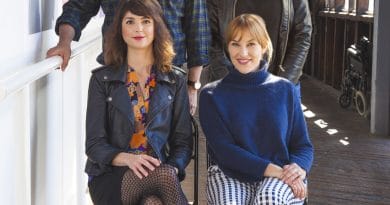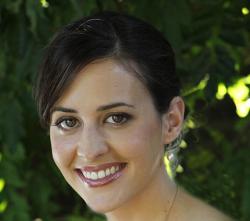The Summer of the Seventeenth Doll — Glen St Theatre season
“The Doll” is one of those classic Australian plays that has been studied by drama students for decades. Written by Ray Lawler and first performed in Melbourne in 1955, it gives a portrayal of Australia that kids these days would barely recognise.
For the 60th anniversary of the play, the South Australian State Theatre Company and director Geordie Brookman have refreshed the old girl, performing a season in Adelaide before heading to Glen Street Theatre in Sydney’s north for a week.

At first, it seems perhaps “The Doll” is just too dated for modern audiences. The Aussie drawl seems a bit too dinkum, the theatrics border on melodrama and those kewpie dolls are of an era long gone. However as we settle into the production and the actors hit their stride, the mood shifts. The audience starts to laugh, they get the jokes and suddenly those themes of an era long gone are relevant once again.
The cane cutter characters of Roo and his mate Barney could just as easily be shift workers or fly-in fly-out miners who spend half their lives away from their partners. The passing of time is something that affects all of us, as are the choices we make in life and the realisation that sometimes the life we’ve chosen is not the one we imagined for ourselves.
Every summer, Roo and Barney head down south from working in Queensland to cavort with their barmaid sheilas Olive and Nancy. From all accounts, it’s a riotous five months that make up for the seven months of the year the women are left to their own devices.
However this summer is different. Roo has gone broke after abandoning the cutting crew because he was outshone by a younger, fitter guy called Johnnie Dowd. Barney’s bird Nancy has decided to settle down, however has chosen another bloke. Olive attempts to recreate the magic by setting Barney up with another barmaid friend Pearl. However no matter how much Pearl tries to fit in (even skolling a beer early in the piece), this straight-laced broad just isn’t right for Barney. He spends the summer in a drunken sulk and shows little of the laughable character Olive told us all about at the beginning of the play. Olive tries her best to make it all right by bouncing around hyperactively and reminiscing about the summers gone by but soon everyone realise it’s just not going to be the same.
Elena Carapetis plays an exuberant Olive who loses her childlike playfulness as the play progresses. It as though the past 16 years have passed in the blink of an eye and her age catches up with her in this 17th summer. Lizzy Falkland’s portrayal of Pearl is flawless, with outstanding physicality portraying her on and off confidence over whether she has a place in this farce. Chris Pitman and Rory Walker play the men well however there were moments when Walker garbled his lines, making it difficult to understand what he was saying. Their fight scene at the end is particularly well designed thanks to choreographer Duncan Maxwell. Rounding out the cast are Jacqy Phillips as the Olive’s crotchety mum Emma, Annabel Matheson as the adorable neighbour Bubba and a cameo by Tim Overton who plays Roo’s nemesis Johnnie Dowd.
The set is relatively simple, with only a few key pieces of furniture, all decorated with Olive’s kewpie dolls. Floor length fabric curtains provide a semi-transparent screen to three sides of the stage, giving you a glimpse at action that transpires backstage. Although you can see what’s going on behind the set well enough, the design of Glen Street Theatre means anything that may go on to the left or right of stage is hindered for most of the audience.
Of particular note in this production is the music by composer Quentin Grant. The piano and cello soundtrack provides a wonderful accompaniment and helps build the tension during the more climactic scene.
At times this interpretation is over-exaggerated and borders on melodramatic, however if you can embrace the ‘Australiana’, then the story being told is as relevant and thought-provoking now as it was 60 years ago.




